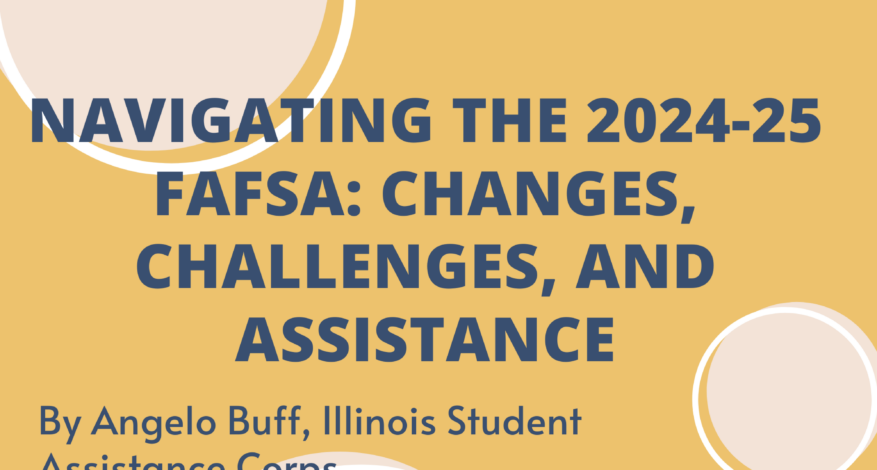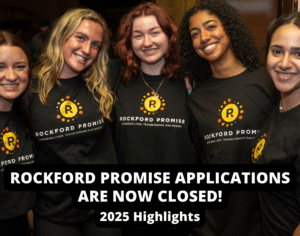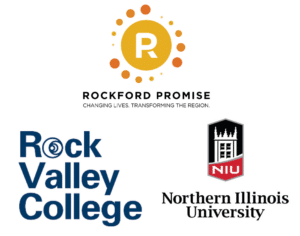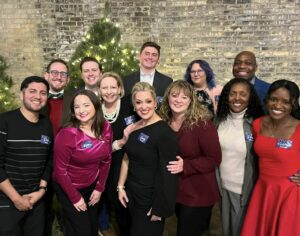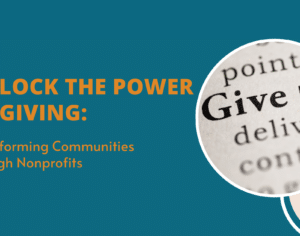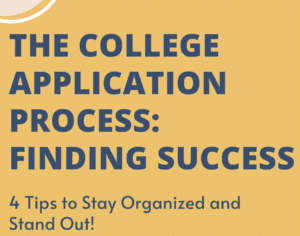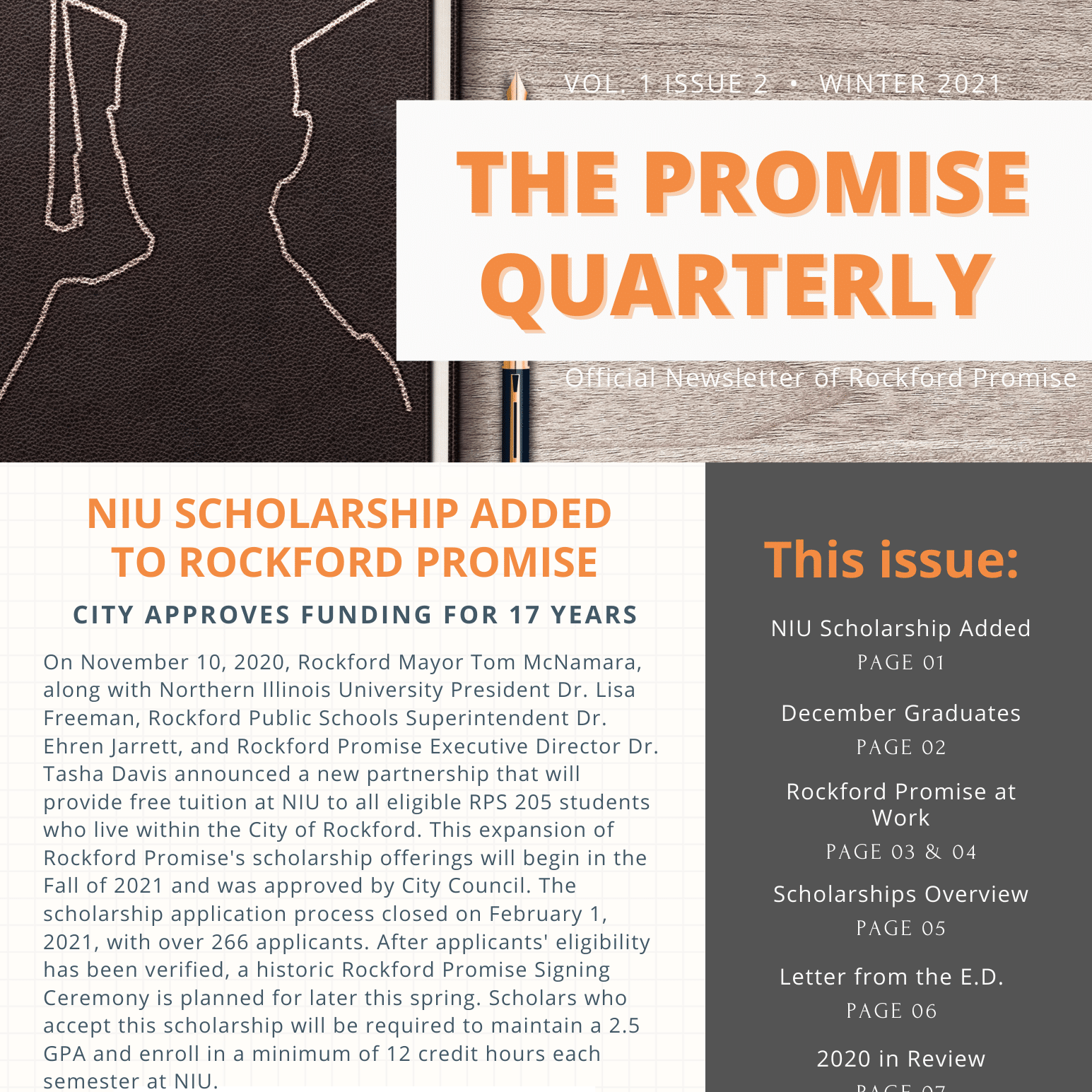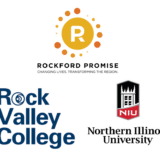Navigating the 2024-25 FAFSA: Changes, Challenges, and Assistance
By Angelo Buff, Illinois Student Assistance Corps
My name is Angelo Buff and I am the ISACorps representative for the Rockford Region, including all Rockford Public Schools (RPS205). Did you know that the Illinois Student Assistance Commission (ISAC) is the college access and financial aid agency for the state of Illinois? ISAC’s mission is to provide Illinois students with information and assistance to help make education beyond high school accessible and affordable. As an ISACorps member, I help middle and high school Illinois students and families navigate the college and financial aid process. In this blog post I will discuss the importance of the Free Application for Federal Student Aid (FAFSA®), the 2024-25 FAFSA renewal process for returning college students, and share ways for students and families to get help with the application.
What is the FAFSA? Should I Complete the 2024-25 FAFSA?
The FAFSA is the application that determines eligibility for all federal, state, and some institutional financial aid. The FAFSA is not just an application for student loans! It’s also an application for grants and scholarships that you don’t have to pay back, like the federal Pell grant and the Illinois MAP grant, both for low income college students.
Anyone planning on attending college or trade school in 2024- 25 who might need funding to help cover the cost should file the 2024-25 FAFSA. Find it at FAFSA.gov. If you are an undocumented student, you won’t be completing the FAFSA because you are not eligible for federal financial aid, but if you are a qualifying Illinois resident who is undocumented, you can apply for state financial aid by completing the 2024-25 Alternative Application for Illinois Financial Aid at www.isac.org/alternativeapp.
If you are a returning college student, you must submit the FAFSA each year you’re in college to determine your eligibility for federal, state, and institutional student aid. There are options available to everyone when it comes to paying for college!
What’s the Deal with the New 2024-25 FAFSA?
The FAFSA has been redesigned for 2024-25. The application has fewer questions and expands eligibility for federal student aid. The most significant changes include the following:
- The application is shorter. The number of questions on the application has been decreased from more than 100 to approximately 50. Many families will answer less than 50 questions and some students will answer as few as 18 questions. I’ve seen returning college students complete it in as little as 10 minutes!
- It is simpler. The new FAFSA uses something called “skip logic” that hides questions not relevant to the student or family.
- Every contributor needs an FSA ID. Anyone reporting information on the FAFSA (student, spouse, parents) is considered a contributor and will need to get their own FSA ID (their own studentaid.gov account). For example, if you are a dependent student, you will need an FSA ID and your parent will need to get their own FSA ID. All contributors should apply to get an FSA ID right away, as it takes 1-3 business days for the Social Security Administration (SSA) to confirm the information matches their records. A parent who does not have a social security number will also need to get an FSA ID.
- More students will be eligible for Pell grants. The 2024-25 FAFSA uses an adjusted formula to calculate a student’s financial need. The calculation of your financial need is called your Student Aid Index or SAI. The formula has been adjusted for inflation and has expanded parameters for who can receive need-based aid, like the Pell grant. The SAI is a number you should keep after you file the FAFSA, as some scholarships and other sources of financial aid may ask for it.
There have been some challenges with the 2024-25 FAFSA. Since 2016, the FAFSA has launched in October, but because of the redesign this year, the FAFSA did not launch until the end of December. Because of some technical and other issues with the 2024-25 FAFSA, including corrections to the FAFSA’s need-analysis formula, the US Dept of Education has announced that it will not start providing FAFSA data to colleges and universities until mid-March. This means that financial aid offers will be sent to students later than usual, and some colleges and universities have already extended their acceptance deadlines beyond May 1 as a result. I encourage students and families to keep in close contact with the colleges and/or universities they have applied to so they are up to date on any changes caused by this delay, including any change in acceptance deadlines.
There are also some technical glitches that are creating issues with the 2024-25 FAFSA. Students who are US citizens or eligible non-citizens who have one or more parents without a social security number are currently experiencing difficulties in completing their application. The Department of Education is aware of these issues and is working to resolve them.
I’m Overwhelmed with the FAFSA! Where can I get help?
I hear you, and I’m going to start by saying that there is still time to file your FAFSA if you are planning on attending college next year, but you should do it as soon as possible because some state and institutional grants are awarded on a first come, first served basis and can run out. You also want to check deadlines for completing financial aid forms at the colleges you applied to.
Need help completing your FAFSA or have questions? There is free assistance available:
Reach out to your school counselor. This is what they are here for! If you are struggling, the first thing you can do is ask them for help. If you do not know who your counselor is, ask your teacher. They’ll be able to figure it out with you.
Attend a free Financial Aid Application Completion Workshop. Check in with your high school to see if they are offering a financial aid application completion workshop at your school. You can also attend a free financial aid application completion workshop hosted by ISAC in your community. Find an upcoming event at https://studentportal.isac.org/Events.
Reach out to your local ISACorps member for free one-on-one assistance. For Rockford Promise students, that will likely be yours truly.
Contact the college(s) you attend or have been admitted to: They want you at their school and want to make sure you have the aid to attend! Reach out to their financial aid office or admissions office for assistance regarding anything you’re encountering. Rock Valley Community College (RVC) also has community assistance to help you with financial aid forms (you do not need to attend RVC to get help). Check out their local events for assistance. The financial aid office at the college you attend or applied to can also give you information about scholarships and grants offered by the institution.
ISAC also has a lot of online and other free resources to help you with college planning, financial aid, and money management. Check out the tools on the ISAC Student Portal. Join ISAC College Q&A, our free text messaging service, to get answers to college and financial aid questions sent directly to your phone. Simply text your first and last name to (847) 243-6470, or for assistance in Spanish, (773) 823-0570.
If you are a first generation college student, the First Generation Scholars Network offers a way to connect with other first gen students, as well as mentoring and other resources to help make your transition and first year of college a whole lot easier and successful.
Stay informed, stay patient, and stay strong!

